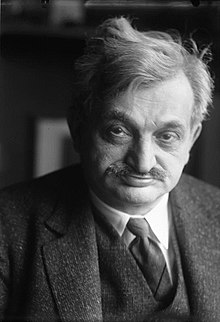Emanuel Lasker
| Emanuel Lasker | |
|---|---|
 |
|
| Full name | Emanuel Lasker |
| Country | Germany |
| Born | December 24, 1868 Berlinchen, Prussia (now Barlinek, Poland) |
| Died | January 11, 1941 (aged 72) New York City, United States |
| World Champion | 1894–1921 |
Emanuel Lasker (December 24, 1868 – January 11, 1941) was a German chess player, mathematician, and philosopher who was World Chess Champion for 27 years (from 1894 to 1921). In his prime Lasker was one of the most dominant champions, and he is still generally regarded as one of the strongest players ever.
His contemporaries used to say that Lasker used a "psychological" approach to the game, and even that he sometimes deliberately played inferior moves to confuse opponents. Recent analysis, however, indicates that he was ahead of his time and used a more flexible approach than his contemporaries, which mystified many of them. Lasker knew contemporary analyses of openings well but disagreed with many of them. He published chess magazines and five chess books, but later players and commentators found it difficult to draw lessons from his methods.
Lasker made contributions to the development of other games. He was a first-class contract bridge player and wrote about bridge and other games, including Go and his own invention, Lasca. His books about games presented a problem that is still considered notable in the mathematical analysis of card games. Lasker was also a research mathematician who was known for his contributions to commutative algebra, which included proving the primary decomposition of the ideals of polynomial rings. On the other hand, his philosophical works and a drama that he co-authored received little attention.
Emanuel Lasker was born on December 24, 1868 at Berlinchen in Neumark (now Barlinek in Poland), the son of a Jewish cantor. At the age of eleven he was sent to Berlin to study mathematics, where he lived with his brother Berthold, eight years his senior, who taught him how to play chess. According to the website Chessmetrics, Berthold was among the world's top ten players in the early 1890s. To supplement their income Emanuel Lasker played chess and card games for small stakes, especially at the Café Kaiserhof.
...
Wikipedia
